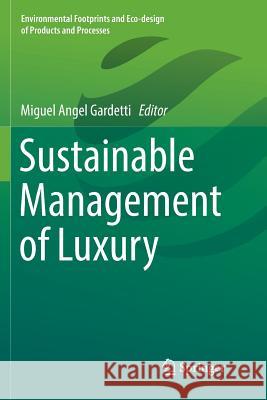Sustainable Management of Luxury » książka
topmenu
Sustainable Management of Luxury
ISBN-13: 9789811097393 / Angielski / Miękka / 2018 / 510 str.
Kategorie BISAC:
Wydawca:
Springer
Seria wydawnicza:
Język:
Angielski
ISBN-13:
9789811097393
Rok wydania:
2018
Wydanie:
Softcover Repri
Ilość stron:
510
Waga:
0.72 kg
Wymiary:
23.39 x 15.6 x 2.69
Oprawa:
Miękka
Wolumenów:
01
Dodatkowe informacje:
Wydanie ilustrowane











